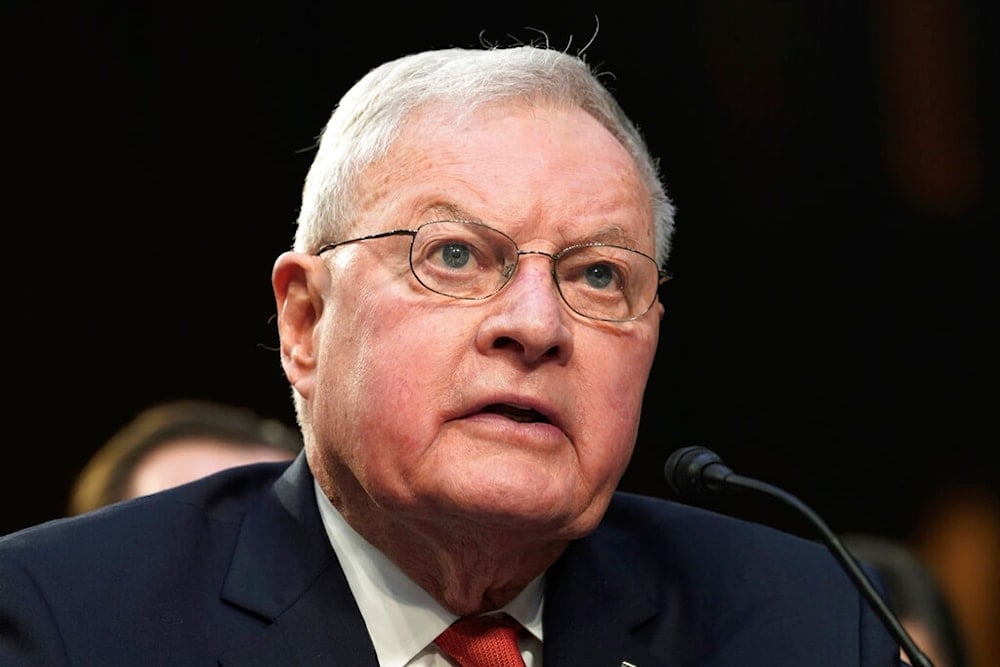Trump envoy says Russian General's killing won't derail peace talks
Lt. Gen. Igor Kirillov and his aide were killed in a bomb blast in Moscow on Tuesday, an attack later claimed by Ukraine's security service (SBU).
-

Keith Kellogg, AFPI Co-Chair of the Center for American Security, speaks during a Senate Armed Services Committee full committee hearing on the conflict in Ukraine, Tuesday, Feb. 28, 2023, on Capitol Hill in Washington. (AP)
The assassination of Lt. Gen. Igor Kirillov, head of Russia's Radiological, Chemical, and Biological Defense Troops, is unlikely to hinder potential peace negotiations between Moscow and Kiev, according to Keith Kellogg, the US President-elect Donald Trump's special envoy to Ukraine and Russia.
Kirillov and his aide were killed in a bomb blast in Moscow on Tuesday, an attack later claimed by Ukraine's security service (SBU).
Addressing the assassination, Kellogg acknowledged its gravity but dismissed it as a major obstacle to diplomacy.
"I don't think it is really a setback, but I would say this: there are rules for warfare, and there are certain things you just kinda don't do," Kellogg told Fox Business, adding that targeting generals in their hometowns instead of on the battlefield is "not a smart thing to do."
The assassination has added to existing tensions between Russia and Ukraine. However, Kellogg expressed optimism about the readiness of both sides to engage in peace negotiations, noting that Trump's leadership could play a key role in facilitating dialogue.
"Absolutely, I think both sides are ready [for peace talks] … and I think President Donald J. Trump can do that," Kellogg said.
Read more: FSB arrests perpetrator of bombing that killed General Kirillov
On December 10, Polish Prime Minister Donald Tusk announced that peace negotiations aimed at ending the war in Ukraine could potentially begin this winter.
While Tusk expressed optimism about potential peace talks, he acknowledged lingering uncertainties about the timing and conditions of negotiations.
Nonetheless, he reaffirmed Poland's commitment to playing a pivotal role in shaping the future of European diplomacy and ensuring support for Ukraine.
Peace talks
On December 8, President-elect Donald Trump proposed a potential reduction in military aid to Ukraine as part of efforts to promote a ceasefire and suggested the possibility of the US withdrawing from NATO if allied nations fail to meet their financial obligations.
"Zelensky and Ukraine would like to make a deal and stop the madness," Trump wrote on social media.
The following day, Ukrainian President Volodymyr Zelensky expressed openness to a diplomatic resolution, considering the deployment of European peacekeepers as a temporary measure until Ukraine secures NATO membership.
"I'm telling you frankly — we can work on Emmanuel's proposal. He proposed that troops of this or that country could be present on Ukrainian territory to guarantee security while Ukraine is not in NATO," Zelensky said Monday after meeting with German opposition leader Friedrich Merz, according to the Kiev Independent.
Read more: The West is silencing calls for diplomacy in Ukraine: Analysis

 3 Min Read
3 Min Read









